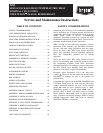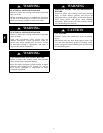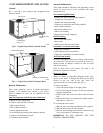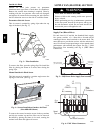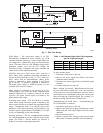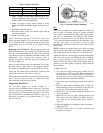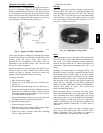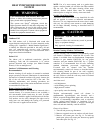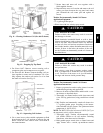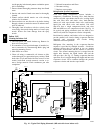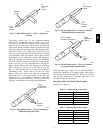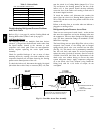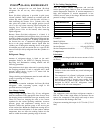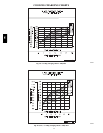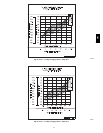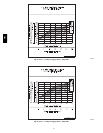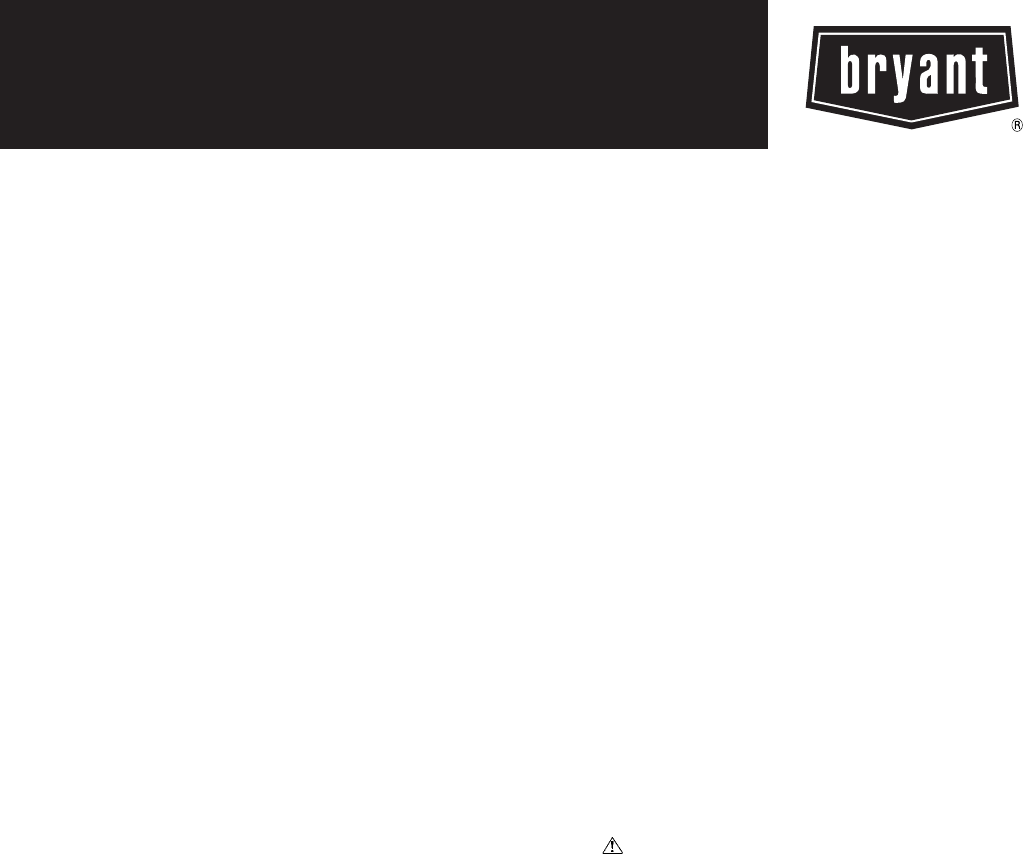
548J
SINGLE PACKAGE HEAT PUMP/ELECTRIC HEAT
NOMINAL 3 TO 8.5 TONS
WITH PURON
R
(R--410A) REFRIGERANT
Service and Maintenance Instructions
TABLE OF CONTENTS
SAFETY CONSIDERATIONS 1....................
UNIT ARRANGEMENT AND ACCESS 3...........
SUPPLY FAN (BLO WER) SECTION 4..............
HEAT PUMP REFRIGERATION SYSTEM 8.........
PURON
R
(R--410A) REFRIGERANT 13.............
COOLIN G CHARGING CHARTS 14................
CONVENIENCE OUTLETS 19....................
HEAT PUMP CONTROLS 20......................
PROTECTIVE CONTROLS 20.....................
COMMERCIAL DEFROST CONTROL 21...........
ELECTRIC HEATERS 24.........................
SMOKE DETECTORS 26.........................
RTU--MP CONTR OL SYSTEM 33..................
ECONOMIZER SYSTEMS 47.....................
WIRING DIAGRAMS 56.........................
PRE--S TART-U P 58..............................
START-UP, GENERAL 5 8.........................
START-UP, RTU--MP C ONTROL 59................
OPERATING SEQUENCE 62......................
FASTENER TORQUE VALUES 67.................
APPENDIX I. MODEL NUMBER SIGNIFICANCE 68...
APPENDIX I I. PHYSICAL DATA 69................
APPENDIX III. FAN PERFORMANCE 71...........
APPENDIX IV. ELECTRICAL INFORMATION 82....
APPENDIX V. WIRING DIAGRAM LIST 96.........
APPENDIX VI. MOTORMASTER SENSOR
LOCATIONS 97.................................
UNIT START-UP CHECKLIST 99..................
SAFETY CONSIDERATIONS
Installation and servici ng of air-conditioning equipment
can be hazardous due to system pressure and electrical
compone nts. Only trained and qualified service personnel
should install, repair, or service air-conditioning
equipment. Untrained personnel can perform the basic
maintenance functions of replacing filters. Trained service
personnel should perform all other operations.
When working on air-conditioning equipme nt, observe
precautions in the literature, tags and labels attached to
the unit, and other safety precautions that may apply.
Follow all safety codes. Wear safety glasses and work
gloves. Use quenching cloth for unbrazing operations.
Have fire extinguishers available for all brazing
operations.
Follow all safety codes. Wear safety glasses and work
gloves. Use quenching cloth for brazing operations. Have
fire extinguisher available. Read these instructions
thoroughly and follow all warnings or cautions attached to
the unit. Consult local building codes and National
Electrical Code (NEC) for special requirements.
Recognize safety information. This is the safety--alert
symbol
. When you see this symbol on the unit and in
instructions or manuals, be alert to the potential for
personal i njury.
Understand the signal words DANGER, WARNING, and
CAUTION. These words are used with the safety--alert
symbol. DANGER identifies the most serious hazards
which will result in severe personal injury or de ath.
WARNING signifies a hazard which could result in
personal injury or death. CAUTION is use d to identify
unsafe practices which may result in m inor personal
injury or product and property damage. NOTE is used to
highlight suggestions which will result in enhanced
installation, reliability, or operation.



